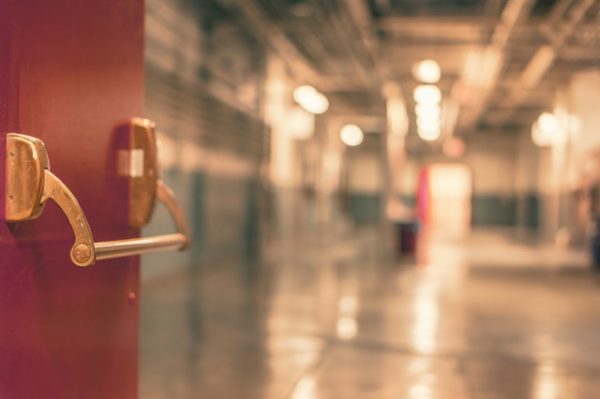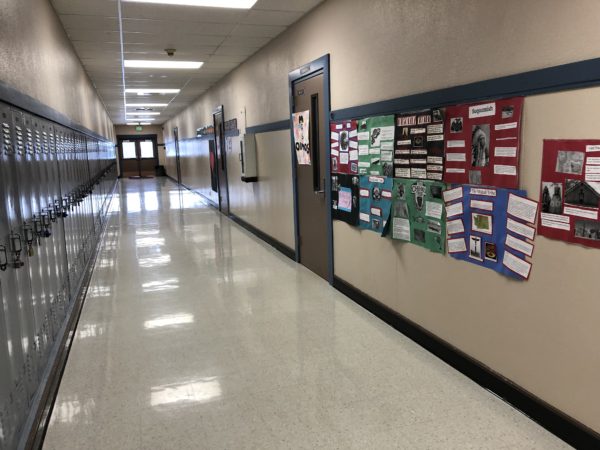Are you here to stay?
For some educators, it is the end. They are leaving the classroom. Others are leaving their current positions, changing their teaching assignments, seeking the change that will heal the damage, the damage of the last three years.

It’s hard to fully analyze what has happened to our profession. So much has changed, and these changes are real and here to stay, whether or not we are.
Let’s break it down into a few chewable bites.
Loss of Control
We educators take years to establish control in our classrooms and in our practice. But, the pandemic stripped away our control. Suddenly, we were tasked with solving unsolvable problems, such as how to continue educating students who were no longer in our classrooms. As students returned, we had no control over the work we could expect from them. Expectation had to be lowered, or we would have experienced prolonged failure for our students and ourselves. Then, close on the heels of the subdued and masked, return to schools, this year brought us a marked increase in behavior issues. Unhappy students, fueled by TikTok challenges, anti-public education sentiment, and pent up emotions, vandalized our schools, stole from us, threatened us, and refused to comply with the simplest tasks.
Loss of Respect
With parents on a national scale accusing us of teaching inappropriate materials, violating their students’ rights with mask mandates and quarantines, and having unrealistic expectations, what should we do? Some students parrot the words of their parents, disrespecting public education in general and their teachers specifically. No matter the hours we put in, the changes we endure, the new training we take on, the tears we shed, we are not always seen as allies in the public eye.
Loss of Hope
The statistics are rolling in. We are going to see the effects of the pandemic and the staggering economy on student achievement for years to come. We face the prospect of appearing to fail at our life’s work for many years to come. We have experienced the effects firsthand in our classrooms with students who are easily a year or more behind, not just academically, but developmentally. We are tasked with the continued problems of inequity and achievement gaps, the threat of gun violence, the ongoing lack of mental health support, diminished resources, and a world full of false narratives and propaganda that we fight on a daily basis, just trying to help our students discover their own truths.
Loss of Joy
There is less time for play, for art, for relaxation in the school setting. The urgency around learning loss and solving the problems growing in the system is driving us away from one the most important elements of education. Students and teachers need to find joy in learning and in being a community. Without it, there is less engagement, less safety, less overall satisfaction in the experience of teaching and learning.
It is tough to face all of the loss and carry on, but we must. Of course, some will not come with us on the journey ahead. We certainly understand their need to seek a new profession or remove themselves from uncomfortable situations. However, the rest of us need to rally and carry on in a way that restores the loss.
Let’s be clear. Restoring the loss is not a call to return to normal. There is no normal, no make education great again rhetoric. We need to embrace new solutions to the problems we face.

If we want control of our profession, we need to lift our voices and let our needs be known. Teacher leadership efforts all but disappeared in the pandemic. It is time to step back into the role of advocates and leaders. What do we need? How can we get it? Why do our voices matter? Who is willing to listen and give us the agency we have earned through our experiences.
If we want respect, we need to face this issue on two fronts. First, in the classroom respect is not a given. We cannot stand in front of a group of young people who have suffered through the last few years and demand, because we are older or we are the authority, that we deserve their respect. When you study the effects of trauma on children, you start to understand that traumatic experiences tend to create an aloofness in children. They do not automatically trust adults. Without trust, true respect cannot exist. To earn the respect of students, it will take time. Teachers will need to focus on the safe and supportive environment they provide in the classroom. They need to model the respect they want to receive. That is the only way to get it from kids who have been struggling. On a larger scale, our respect as a profession will also take time. We need to openly advocate for the safety and support of our students. Our voices need to be heard, so that the false narratives have some competition. And, maybe most importantly, we need to reach out to families and communities, including them and opening our doors. When they see what we do for kids, they will have a deeper understanding.
If we want hope for the future of education, the time is ripe for innovation, creativity, and entrepreneurship. Seek and share solutions to our common problems. What works? What helps our students? What makes us happier in our classrooms? For me, I am diving deeper into trauma-informed teaching practices and brain science. The pandemic gave me the opportunity to put my work online and expand the resources I provide to my students. I am not pulling back from that; I am leaning in. I am embracing technology as a way to open up a world of knowledge for my students, and I resolve to help them find their own truth through informed research and inquiry. After all, those kids are my hope.
Finally, if we want joy, we need to play and create together. We need to offset the incessant testing with music, theater, dance, art, physical activity, and all pursuits that bring smiles to the faces in our buildings. Happiness is the cure for all the ills we are facing, and the pursuit of happiness in education is a noble cause.
So, if you are not giving up on finding your joy in this profession, I invite you to join me in my quest for regaining our control, our respect, our hope, and our joy.
Despite the challenges (and because of them), I’m staying.
Are you?
Ready for a deeper dive? Check out the links below.
Links to stories about the crisis:
NPR’s Consider This: Teachers Reflect on a Tough School Year
EdSource: Covid Challenges, Bad Student Behavior, Push Teachers to the Limit & Out the Door
The Wall Street Journal: School’s Out for Summer & Many Teachers Are Calling It Quits
NPR: We Asked Teachers How Their Year Went; They Warned of an Exodus to Come
Here some more to address some of the problems:
Education Week Video: How Can We Solve the Teacher Staffing Shortage
Secretary Cardona Lays Out a Vision to Support and Elevate the Teaching Profession
Education Week: How School Leaders Can Support Social Emotional Learning (and Retain Teachers, Too)
Experts Say We Can Prevent School Shootings; Here’s What the Research Says
I deliberated, and had an outside of the classroom opportunity that seemed promising, but ultimately decided to stay. The decision was because of my colleagues and my boss… we are a team that I think cannot be replicated (imho). I think if I had been anywhere else, including places I’ve taught previously, I’d likely have decided to change.
It was the hardest year of my career (even more so than the end of 2020 and the remote/hybrid/struggles of 2020-2021). I don’t know how anyone with out the colleague and supervisor support I had could survive. I don’t blame people for leaving, though it makes me deeply sad for what our country and culture has done to teaching, schools, kids…
I’m glad you’re hanging in there, Mark. It is a difficult time for everyone in education, from the students to the administration. Luckily, some of us have the support to weather the storm. Keep doing the work. You are making a difference.